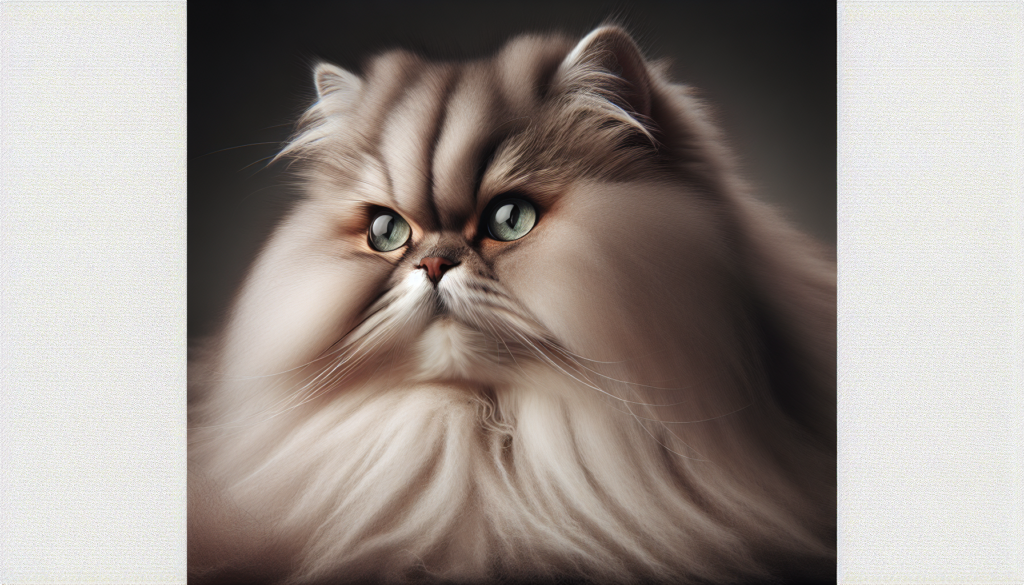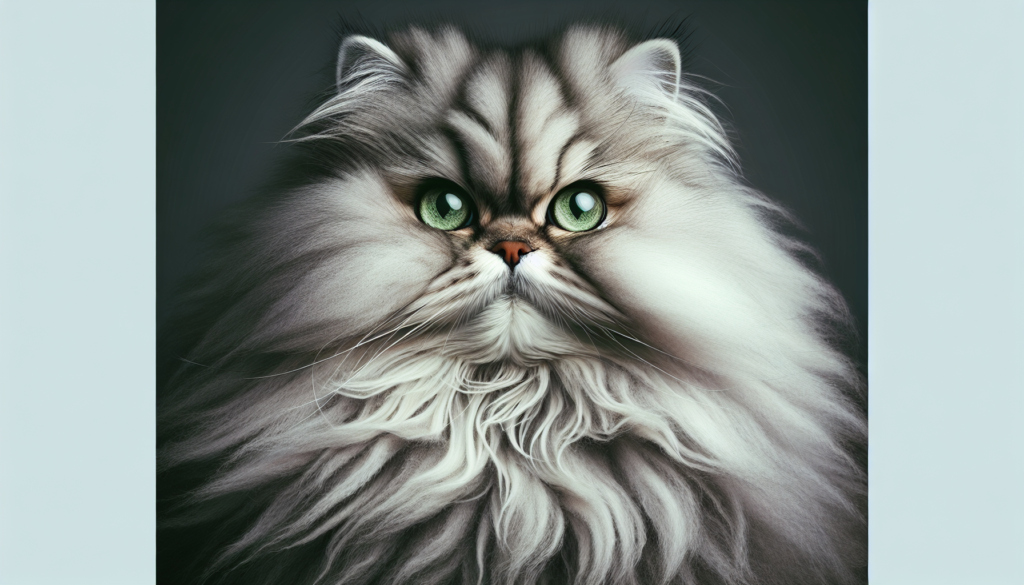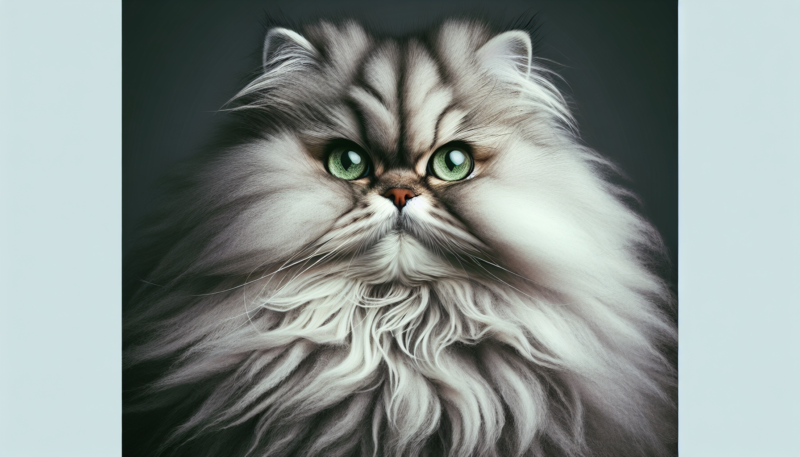If you’re considering adding a furry friend to your family, the Persian cat is undoubtedly a breed that deserves your attention. With their luxurious coat, gentle demeanor, and expressive eyes, Persian cats have earned a special place in the hearts of cat lovers worldwide. However, before making the decision to bring a Persian cat into your home, it’s important to weigh the pros and cons that come along with this charming and regal breed. In this article, you’ll discover the advantages and disadvantages of owning a Persian cat, helping you make an informed choice that aligns with your lifestyle and preferences.
Appearance
Beautiful long fur
Persian cats are known for their stunning appearance, particularly their beautiful long fur. Their coats are thick, silky, and luxurious, making them look like little balls of fluff. The fur of Persian cats comes in a wide range of colors and patterns, adding to their overall charm and elegance.
Distinctive round face
One of the most recognizable features of the Persian cat is their distinctive round face. Their adorable face shape, with round cheeks and a short, flat nose, gives them a sweet and innocent expression. This unique facial structure is one of the reasons why Persian cats are incredibly popular and sought after.
Large expressive eyes
The large, expressive eyes of Persian cats are truly captivating. Their eyes come in various colors, including blue, green, copper, and gold. These big, round eyes peering out from their adorable faces add to their overall cuteness and appeal. They have a way of melting your heart with just one look.
Personality
Gentle and calm
Persian cats are known for their gentle and calm nature. They have a laid-back demeanor that makes them great companions for those seeking a peaceful and relaxing environment. They are not overly demanding or hyperactive, which can be a plus for individuals who prefer a more serene and low-key pet.
Affectionate and loving
Despite their reserved nature, Persian cats are incredibly affectionate and loving towards their owners. Once they have formed a bond with you, they will shower you with love and devotion. They enjoy gentle cuddles, warm laps, and cozy moments together, making them excellent companions for those craving companionship and affection.
Reserved and independent
Persian cats can be quite independent and reserved. They may not be as outgoing or social as some other breeds, and they may prefer their own personal space at times. However, this doesn’t mean they don’t enjoy human company. They just appreciate a peaceful environment and may need their alone time every now and then.

Maintenance
Regular grooming required
Due to their long, thick fur, Persian cats require regular grooming to keep their coat in top condition. The fur can easily become tangled and matted if neglected, so it’s important to establish a grooming routine. Daily brushing is necessary to prevent mats and remove loose hair, keeping their coat healthy and beautiful.
Prone to matting and tangles
The long fur of Persian cats is prone to matting and tangles, especially if not properly cared for. These mats can be uncomfortable and even painful for the cats, so it’s essential to keep their coat tangle-free. Grooming sessions should include gentle detangling and the use of appropriate grooming tools to maintain their fur’s cleanliness and smoothness.
Needs daily eye and face cleaning
Persian cats have a specific grooming need that sets them apart from other breeds – daily eye and face cleaning. Because of their facial structure, their eyes and nose can be prone to tear stains and discharge buildup. Regularly wiping their face with a damp cloth or using specialized pet wipes can help prevent any discomfort or hygiene issues.
Health
Susceptible to respiratory issues
One of the health considerations for Persian cats is their increased susceptibility to respiratory issues. Their short noses and flat faces make them more prone to breathing difficulties, especially in hot and humid climates. It is important to provide a well-ventilated and cool environment for them to minimize the risk of respiratory problems.
Prone to eye problems
Persian cats are more prone to certain eye problems compared to other breeds. Their large, beautiful eyes can be susceptible to conditions such as excessive tearing, eye infections, and corneal ulcers. Regular eye examinations and proper eye care, including gentle cleaning, can help detect and prevent any potential eye issues.
Higher risk of kidney disease
Sadly, Persian cats have a higher risk of developing kidney disease compared to other breeds. A balanced diet, regular veterinary check-ups, and maintaining good hydration are crucial to support their kidney health. Monitoring their water intake and litter box habits can help identify any early signs of kidney problems and allow for timely intervention.

Playfulness
Not very active or energetic
If you’re looking for a high-energy and playful cat, the Persian may not be the best fit for you. Persian cats are generally not as active or energetic as some other breeds. They prefer a more relaxed and calm lifestyle, often spending their days lounging and observing their surroundings rather than chasing toys or engaging in high-intensity play.
Prefers a calm and quiet environment
Given their calm nature, Persian cats thrive in a calm and quiet environment. They appreciate tranquility and may become stressed or anxious in loud or chaotic households. It’s important to create a peaceful space for them, where they can feel secure and at ease.
Enjoys interactive play with toys
While Persian cats may not be the most active, they still enjoy interactive play with toys. Engaging them with interactive toys, such as feather wands or puzzle toys, can provide mental stimulation and entertainment. It’s important to find a balance between allowing them to relax and providing opportunities for gentle play.
Compatibility
Suitable for older individuals or families
Persian cats are well-suited for older individuals or families seeking a calm and low-maintenance pet. Their gentle and affectionate nature makes them ideal companions for those looking for a quieter and more laid-back pet experience. They can bring comfort and joy to individuals or families who appreciate their tranquil presence.
May not tolerate rough handling or young children
Due to their reserved nature, Persian cats may not tolerate rough handling or overly energetic interactions. They prefer gentle and peaceful interactions, and as such, they may not be the best choice for households with young children who might accidentally mishandle or startle them. It’s important to teach children to handle them with care and respect their need for personal space.
Gets along well with other pets
Persian cats are generally known to get along well with other pets, making them a potential fit for multi-pet households. They have a calm and tolerant nature that can help facilitate positive interactions with other animals. Proper introductions and monitoring should be done to ensure a harmonious coexistence.
Vocalization
Tends to be quiet and peaceful
When it comes to vocalization, Persian cats tend to be on the quieter side. They are not known for excessively meowing or making loud noises. Instead, they communicate through soft purring and gentle sounds, adding a peaceful ambiance to your home. Their quiet nature can be a welcome characteristic for those who prefer a more tranquil living space.
Rarely vocalizes or meows excessively
Persian cats are not the type to constantly demand attention or vocalize their needs through excessive meowing. They are content with their serene surroundings and are generally self-sufficient. However, they may still communicate their desires or needs through subtle vocalizations, ensuring that their presence is felt without being intrusive.
Lifespan
Has a long lifespan of 12-18 years
Persian cats are known for their impressively long lifespan compared to many other cat breeds. With proper care and a healthy lifestyle, Persian cats can live for 12 to 18 years on average. This long lifespan provides years of companionship and joy to their owners.
May require more frequent vet visits in old age
As Persian cats age, they may require more frequent veterinarian visits to monitor their health and address any age-related issues. Regular check-ups become especially important to ensure their well-being and detect any potential health concerns early on. Keeping up with vaccinations, dental care, and routine screenings can help maintain their quality of life.
Careful monitoring of health is necessary
Due to their potential health vulnerabilities, careful monitoring of their health is necessary for Persian cats. Regular observation of their eating habits, litter box behavior, grooming routines, and overall vitality is crucial in identifying any changes or concerns promptly. Maintaining a close relationship with a trusted veterinarian and following their recommendations will help ensure a long and healthy life for your Persian companion.
Allergies
Produces less allergenic dander
While no cat is completely hypoallergenic, Persian cats are often considered a better choice for individuals with allergies. They produce less allergenic dander compared to some other cat breeds, reducing the likelihood of triggering allergic reactions. However, it’s important to note that individual sensitivities can still vary, and it’s advisable to spend time with a Persian cat before committing to ensure compatibility.
May still cause allergies in sensitive individuals
Despite their lower allergenic potential, some individuals may still experience allergies or sensitivities to Persian cats. It’s crucial for individuals with known allergies to spend time interacting closely with a Persian cat to determine their personal tolerance. If allergies persist or worsen, it may be necessary to explore other options or consult with a medical professional.
Regular cleaning can help reduce allergic reactions
To minimize the impact of allergies, regular cleaning practices can be beneficial. Vacuuming and dusting frequently to remove pet dander, washing bedding regularly, and providing designated, dander-free areas can help reduce allergen exposure. Consultation with an allergist or immunologist can provide further guidance on managing allergies in a household with a Persian cat.
Breeding and Cost
Expensive breed due to rarity and popularity
Persian cats are known for their rarity and popularity, which contributes to their higher price tag. Obtaining a Persian cat from a reputable breeder can be more expensive compared to some other cat breeds. The breeding process for Persian cats often involves careful breeding practices to ensure the health and quality of the kittens, which can also contribute to their cost.
Requires responsible breeding practices
Due to their unique physical characteristics, responsible breeding practices are crucial for Persian cats. Breeders need to prioritize the health of the cats, considering factors such as respiratory function, eye health, and overall well-being. Ethical breeders aim to produce healthy kittens with sound genetics, ensuring a positive future for the breed.
Kittens may be available through reputable breeders or rescue organizations
If you’re interested in adding a Persian cat to your family, there are options to consider. Reputable breeders can provide healthy and well-socialized Persian kittens, ensuring a good start in life. Additionally, rescue organizations may occasionally have Persian cats in need of loving homes. Adoption can be a rewarding option, providing a chance to give a deserving Persian cat a second chance at a happy life.
